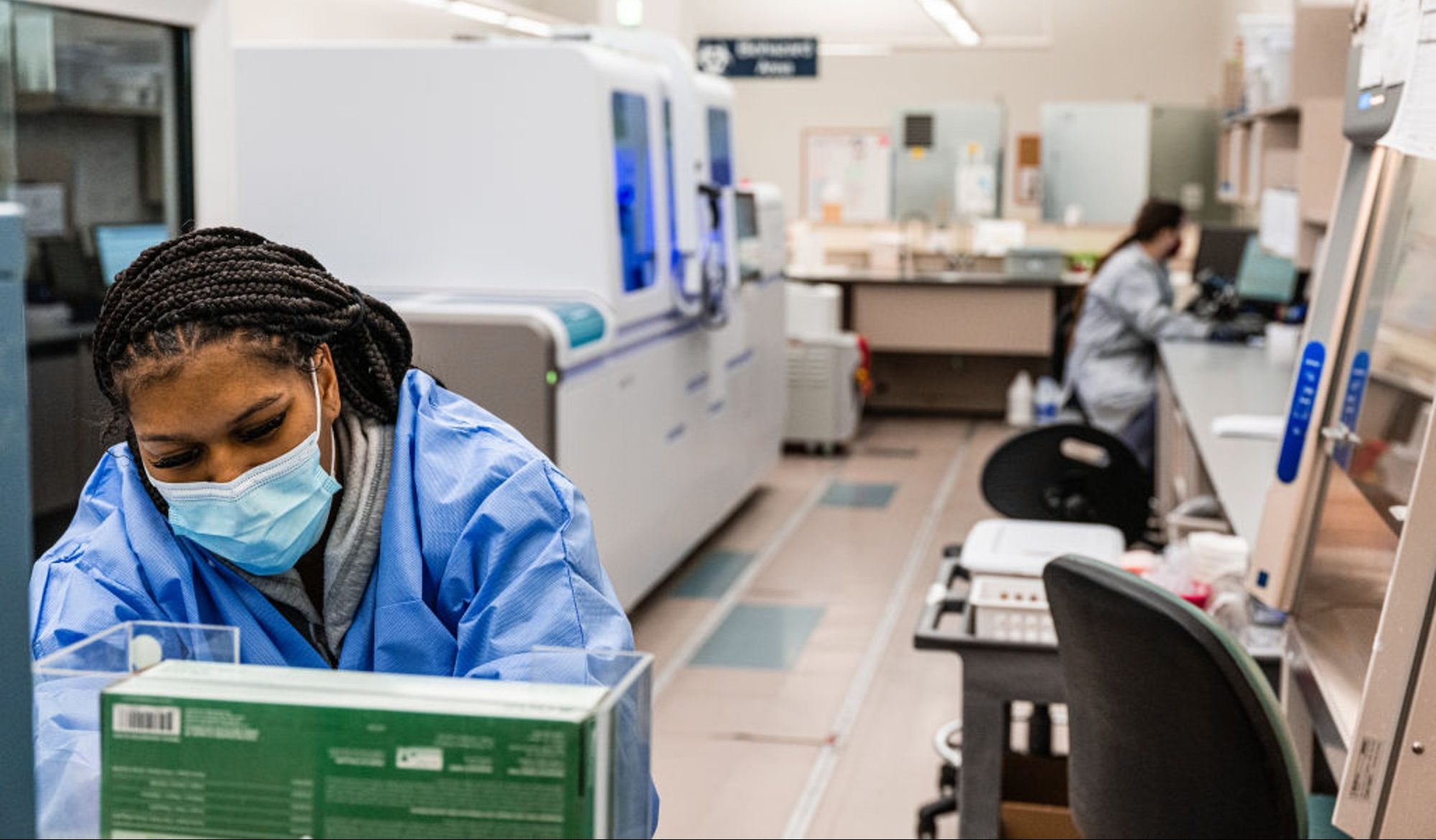(CNN Spanish) --
If the United States wants to protect its technological development, it must keep an eye on its immigration policies and do more to attract and retain foreign talent, say experts from the Academies of Science, Engineering and Medicine, in a report that warns about China's competition in technology and specifically addresses the problem of visas for temporary workers.
Growing concerns about the possibility of the United States losing leadership in technological areas that are key to the country's development have made many wonder if it is not necessary to establish more controls and restrictions on access to certain technologies.
The experts from the Academy, who advise the Government on the matter, were asked to analyze this possibility.
However, his response urges the authorities to change the focus of the discussion and states that if the United States wants to maintain the advantages it has in terms of technology and protect its development, it must, among other measures, improve its ability to "attract, retain and support the world's most talented workers in Science, Engineering and Innovation".
The fight for foreign talent
The United States had enjoyed, since the end of World War II, the comparative advantage of being the leading destination for foreign students and researchers.
However, the country can no longer assume "that it is the 'default' option for the best scientific and engineering talent in the world," say the scientists themselves, warning that other countries are "competing aggressively" to keep the best professionals and students.
advertising
That is why, in addition to working on developing talent locally, the United States needs to "aggressively expand the advantages it offers to international talent, including the best academic research universities, (and) open research environments, well funded , of high reputation and innovative", among other conditions to attract the most outstanding students and researchers.
Criticism of the immigration system and available visas
US immigration policies for students, researchers and technology workers are characterized by "disconnects and mismatches," according to the researchers.
Compared to the United States, other English-speaking countries such as Canada, Australia and the United Kingdom have "more flexible and more skills-focused" systems.
The figures show that immigration of highly-skilled individuals is growing fastest in other Organization for Economic Co-operation and Development (OECD) countries and "the percentage of international students in the United States has been falling."
"Although recent immigration reforms in the United States have allowed foreign students to work in this country longer ... after completing their degrees, the number of temporary work visas is limited, even for those occupations in which that there is a high demand for workers," the report says.
Imposing "excessive" restrictions drives the most talented individuals to seek other places to live and work, ultimately benefiting US competitors.
The United States is responsible for about 24% of the world's economic output while accounting for only 4.2% of the population, experts say.
And this population includes foreigners who have come to the country to study and work and have contributed to its development.
The Chinese Factor
Throughout the more than 100 pages of the report, which has multiple recommendations, experts delve into the role of China, which has emerged as "the main technological and economic competitor of the United States."
The investment of the Asian country in Research and Development, the publication of scientific articles and its patents have increased considerably in recent years, according to the survey of the academies.
China is also the country of origin for the largest number of foreign students from the United States, according to figures in the report.
And the recent news about student visas seems to be in line with what the experts say.
According to a report by
The Wall Street Journal
, the number of student visas granted to Chinese fell by more than 50% in the first half of 2022 compared to levels prior to the outbreak of the covid-19 pandemic.
"The United States is losing ground as the most coveted place for Chinese students to pursue higher education abroad," says the newspaper.
In 2021, the United States granted a total of 357,839 student visas (category F), according to data from the Department of State.
The figure is lower than those recorded in the three years before the pandemic.
In 2017, for example, the country had granted a total of 393,573 visas.
The voices of technology
The Academies of Science, Engineering and Medicine join with this report a position that has been openly defended by big technology companies that rely heavily on the talent of foreign-born engineers and have long advocated for policies that encourage immigration highly qualified in the United States.
In June, tech titans like Google, Amazon and IBM called on the government to prevent the deportation of the adult children of high-skilled migrant workers, a policy that puts tens of thousands of families at risk.
That situation, the technology companies said in a letter, "prevents our companies from attracting and retaining the most important talent in the United States."

